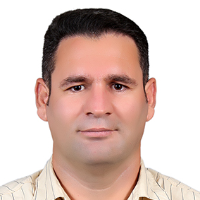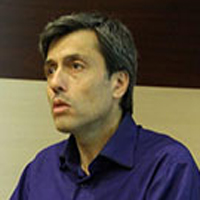Effect of Diabetes Induction and Exercisetraining on the Level of Ascorbic Acid and Muscle SVCT2 in Male Wistar Rats
Sodium-dependent vitamin C transporter 2 (SVCT2) plays an important role in the transfer of ascorbic acid to slow-twitch fiber. The purpose of this study was investigating the effect of diabetes induction and exercise training on the level of ascorbic acid and muscle SVCT2 in rats.
In this experimental study, 20 male Wistar rats were randomly divided into four groups (n=5 per group): 1) healthy control 2) diabetic control, 3) diabetic exercise, 4) sham. Diabetic was induced by injection of Streptozotocin solution (55 mg / kg). The exercise program was performed 6 weeks of aerobic running on Treadmill, 5 sessions per week and each training session for 20-40 minutes at an intensity of 50-70% VO2max. Homogeneous tissue of soleus muscle and serum was analyzed to evaluate the effect of exercise training on ascorbic acid metabolism. Data were analyzed by SPSS version 18 software and one-wayANOVA test (P ≤ 0.05).
The results showed that there was significant differences (P < 0.05) between the level muscle and serum ascorbic acid in diabetic and diabetic + exercise groups compare to the healthy control and sham groups. But no significant differences was found in SVCT2 of Soleus muscle between groups (P> 0.05).
Induction of diabetes induces a decrease in muscle levels of ascorbic acid, which appears to be associated with a decrease in serum ascorbic acid levels, since no significant difference was found in SVCT2 levels. Also, exercise training had no significant effect on serum and muscle ascorbic acid levels of muscle SVCT2 levels.
-
The Effect of a Short Period of Aerobic Training on Serum Asprosin, Glycemic Control, and Lipid Profile in Women with Type 2 Diabetes
, Majid Nasiri, Hadi Kardan, Bita Bordbar Azari, Mojtaba Dalaramnasab *, Neda Dadvar
International journal of basic science in medicine, Mar 2024 -
Comparison of metabolic profiles of elite male karate athletes with different physical fitness levels during different phases of simulated competitions
Masoud Rahnama, Hamid Mohebi *,
Metabolism and Exercise a biannual Jounal, -
The response of corticospinal excitability to different intensities of postactivation potentiation in young trained subjects
Hassan Kosari *, Pezhman Motamedi, , Shahriar Gharibzade, Shapour Jaberzadeh
Journal of practical studies of Biosciences in Sport, -
Comparison of Quality of life, Thyroid Hormones, and Blood Glucose in Active and Inactive Pregnant Women
Sarour Rashidian, Kayhan Fathi, *
Jundishapur Scientific Medical Journal,




